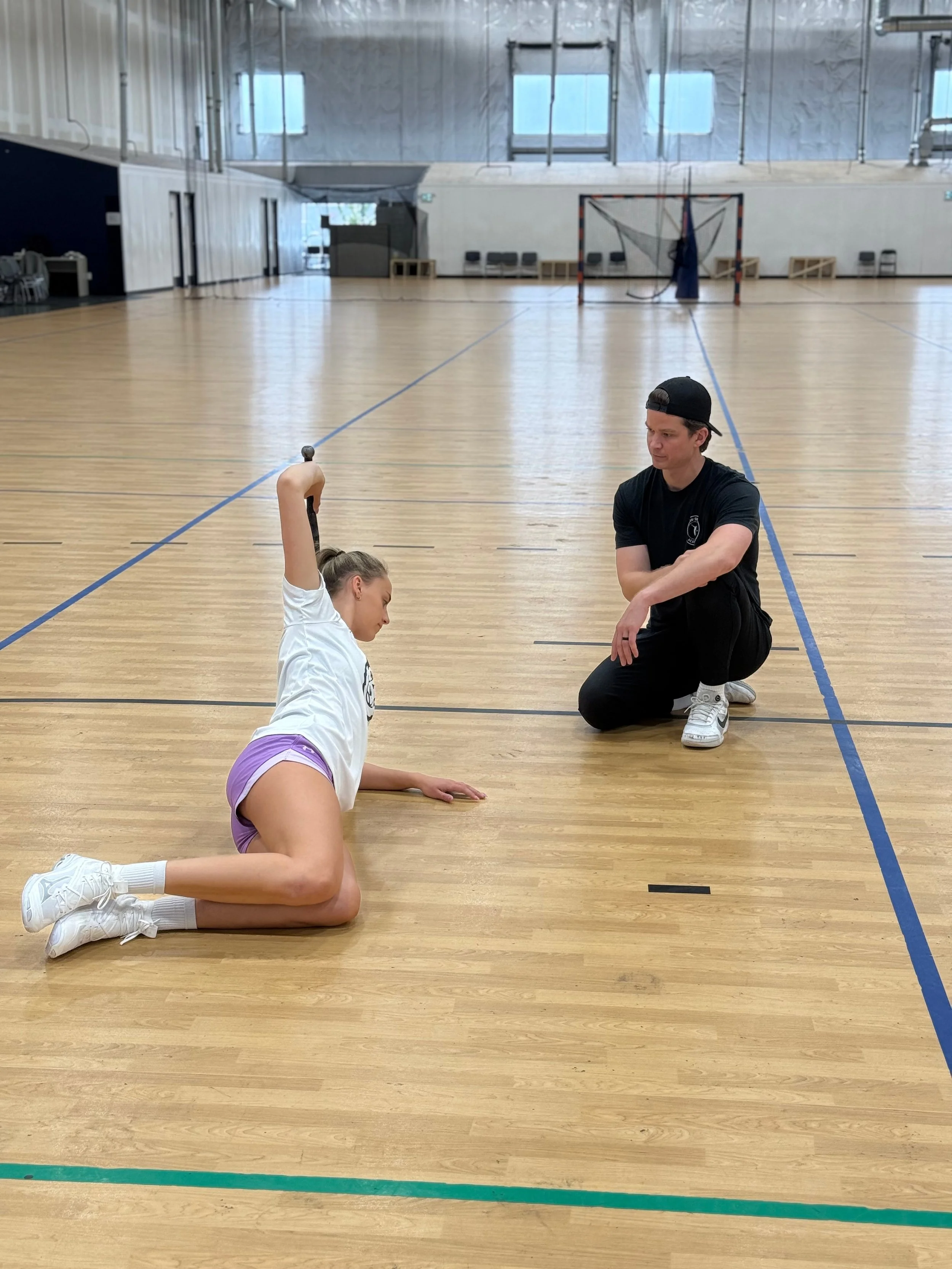1-on-1 Sessions

Breakthrough Sessions:
Two same day 2-hour sessions
Comprehensive arm swing analysis
Strength/Movement training
On-court - working on arm swing mechanics
Custom program addressing limitations
Follow-up player profile with video analysis
Follow-up video call 4-6 weeks after session
Cost: $950
Private Sessions:
60 minute sessions
Arm swing analysis
Strength/movement training
On-court mechanic coaching
'Homework' drills + exercises
Personalized feedback
Sessions in Edmonton, Alberta
Cost: $250
Why 1-on-1?
Most athletes come to me because they haven’t been able to get the results they’re after. Whether they’re trying to play pain-free, recover from an injury, or improve their performance, they feel stuck. Many have already tried a long list of solutions - but they’re still in pain, still not progressing, and starting to believe that this might just be “the way it is.” If that sounds familiar, you’re in the right place.
In-person sessions are unique because we don’t separate the weight room from the volleyball court — we use both environments together to create more powerful and lasting results.
Our facility in Edmonton includes a fully equipped weight room and volleyball courts, allowing us to seamlessly blend strength, movement, and arm swing training in real time. Whether it’s refining your arm swing, improving movement mechanics, or addressing pain, we move fluidly between the gym and the court to maximize your progress.
Some sessions might focus more on the gym, others more on the court, but most combine both to create a holistic approach that you won’t find anywhere else.
If you’re local — or willing to fly in — and want an innovative, integrated training experience that accelerates your results, in-person coaching here is truly one-of-a-kind
The Process
-
This might sound simple, but it’s often missing from most coaching assessments. One of the first questions I ask is: “What have you already done?”
This opens the door to valuable insights — what’s worked, what hasn’t, and where we’re spinning our wheels. If an athlete is coming to me, it’s usually because their current approach isn’t getting the job done. So why waste time repeating the same thing? -
Next, I assess how the athlete moves — both in a weight room and in their sport. I look at movement efficiency and the athlete’s capacity to repeat efficient patterns over time. This dual-environment approach often reveals blind spots that traditional assessments miss. Combined with what I’ve learned in Step 1, it gives us a clear starting point for change.
-
Now it’s time to experiment. Based on our findings, we test a few targeted strategies to see what creates real change. Not everything will work — and that’s okay. If something I expected to help doesn’t move the needle, I don’t let ego get in the way. I go back to the drawing board, re-assess, and adjust until we find what does.
-
Once we’ve identified effective strategies, we focus on making movement cost less. Think of your body like a bank account. Every movement withdraws from that account. If you have $1,000, we want each rep to cost a few cents — not a few hundred dollars. The more efficient the movement, the slower the account drains. When the account runs low, that’s when pain, overuse injuries, and performance dips tend to show up.
We’re not chasing “perfect” movement — we’re chasing efficient movement that lets athletes stay durable and play longer.
-
Reducing the cost of movement is only half the equation. We also need to build capacity — so athletes can handle more load, volume, and intensity without breaking down. This means developing physical qualities like strength, control, and resilience alongside better mechanics.
-
Finally, we connect the dots between strength training and sport performance.
My goal isn’t for an athlete to become the best lifter in the gym — it’s for their improved movement to show up on the court, where it matters most.Efficient movement in the weight room means nothing if it doesn't transfer to better swings, faster reactions, or pain-free play. That’s the bridge we build together.
We’ve worked with:
-
Olympians
6
-
Professional Players
30+
-
National Team Players
35+
-
Professionals from Other Sports
10+

Our impact:







